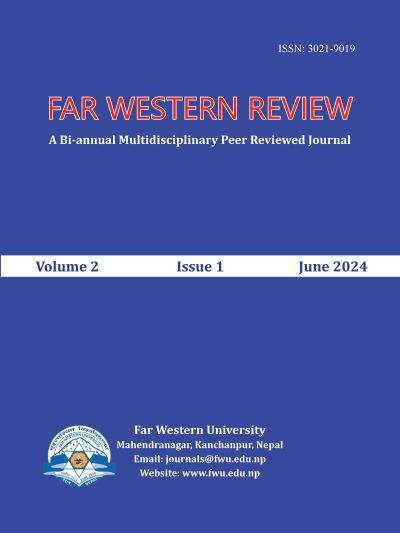Decolonizing Language in Education Policies of Nepal
DOI:
https://doi.org/10.3126/fwr.v2i1.70542Keywords:
Decolonization, anguage in education, medium of instruction, PolicyAbstract
Nepal has never been formally colonized; however, it struggles with the intricate effects of both internal and foreign linguistic colonialism, which has resulted in the marginalization of several indigenous languages in the formal educational system. The present paper explores how language education policies are changing in Nepal, a country with a wide variety of languages. This qualitative study used phenomenology as a research method and purposively selected four government aided school teachers as participants. Tool for data collection was interview and the findings showed that English is a dominant language in education policy though the constitution of Nepal allows mother tongue or national language i. e. Nepali to be the medium of instruction in the government schools. The study explored the expanding decolonization movement in language in education policy, led by communities, educators, and grassroots activists. The goal of this movement is to establish a more fair and inclusive learning environment from supporting the acknowledgement and integration of indigenous languages in formal education. The paper explored the historical mechanisms of linguistic colonialism in the educational system, examining the prioritization of dominant languages over indigenous languages and the resultant exclusion of the latter. The study concludes by outlining the current changes being made to Nepal’s language education regulations and highlighting the importance of linguistic inclusion as a driver of social cohesion and cultural preservation. By providing insights into the problems and possibilities of incorporating indigenous languages into formal educational systems, the research adds to the larger conversation on decolonizing education.
Downloads
Downloads
Published
How to Cite
Issue
Section
License

This work is licensed under a Creative Commons Attribution-NonCommercial 4.0 International License.
CC BY-NC: This license allows reusers to distribute, remix, adapt, and build upon the material in any medium or format for noncommercial purposes only, and only so long as attribution is given to the creator.




